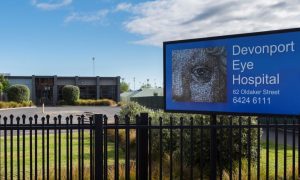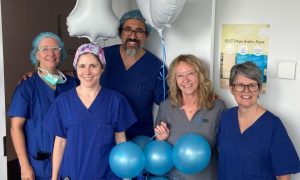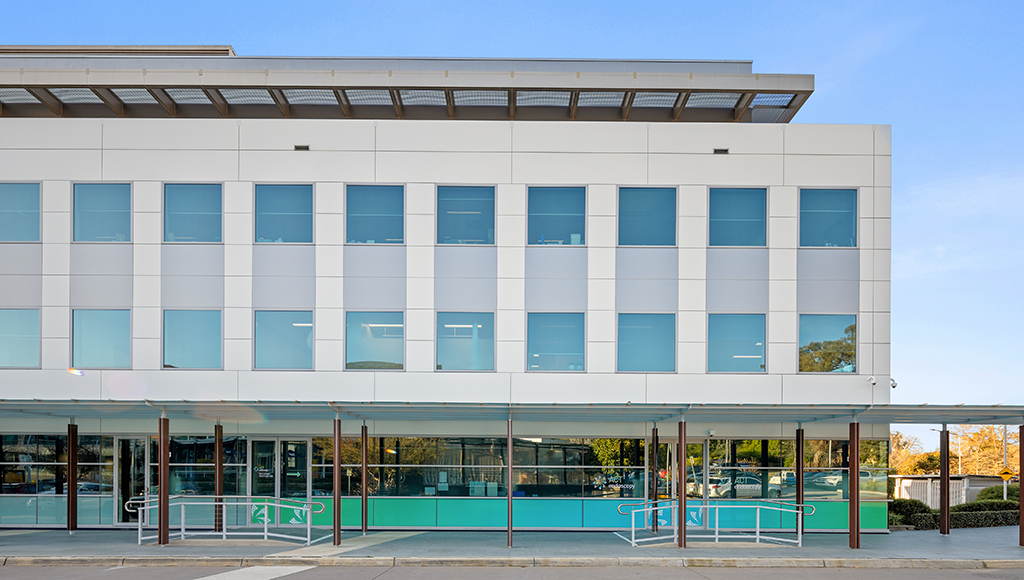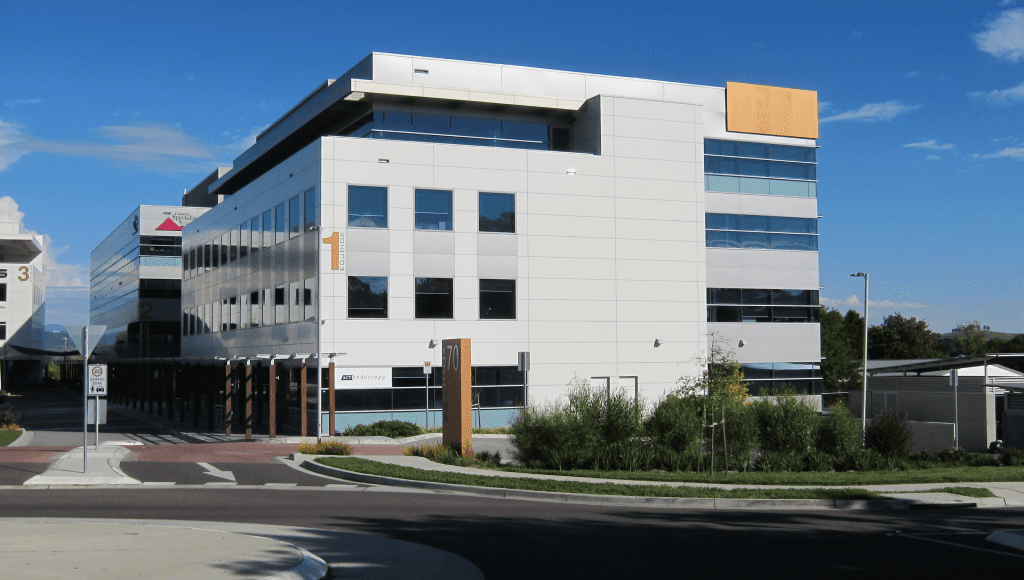Cura Group navigation
Hospital information
General information
Patient information
Welcome to ACT Endoscopy
This patient information is designed to answer any questions you may have about your procedure or the hospital during your stay. Please feel free to discuss any queries or special needs with our staff and let us know if there is anything else we can do to make your stay with us more comfortable.
Please use the expand and collapse feature below to find out more
Your Gastroenterologist’s rooms will provide you with written information about the procedure and preparation required for the procedure you are about to undergo. You will also complete your patient forms and be advised of your fasting and admission time at the Surgeon’s rooms.
Be sure to confirm your level of cover with your health insurance fund and ensure that your contributions are up to date.
How to prepare on the day of your procedure:
- Shower before arriving at the Hospital
- Wear loose, comfortable clothes
- No jewellery or valuables except for wedding bands
- No perfume or aftershave
- Do not smoke on the day of your surgery
What to bring on the day of your procedure:
- Medicare Card
- Health Fund Card
- Pension card / Veterans Affairs card
- Payment for your procedure or health fund excess
- A list of current medications
- Referral letter from your doctor
- Reading glasses and glasses case for safekeeping, if appropriate
- If you wear hearing aids or dentures, please bring the appropriate case for their safekeeping.
Virtually all surgical procedures require some form of anaesthesia however we understand that this can be an anxious time. We would like to reassure that you are in good hands. Anaesthetists and Sedationists in Australia are specialists in administering anaesthesia, as well as pain control, resuscitation and managing medical emergencies.
Your Anaesthetist or Sedationist will see you before the procedure, allowing you the opportunity to discuss any concerns. It is important that you disclose everything that you think is relevant, and also to follow the fasting instructions. Your Anaesthetist will monitor you during and after your procedure to ensure a smooth and trouble-free recovery.
The use of new surgical techniques combined with modern anaesthesia results in more rapid recovery – making day surgery preferable to overnight hospitalisation.
Anaesthesia used at ACT Endoscopy:
IV Sedation: Local anaesthetic may be combined with IV sedation. IV sedation is anti-anxiety drugs which are administered intravenously in order to make the patient feel relaxed and comfortable during the procedure. You are asleep during your procedure and you will still be breathing on your own. You will have an oxygen mask on your face providing you with oxygen as you sleep.
What are the risks of the anaesthetic?
Modern anaesthesia is generally very safe. Every anaesthetic has a risk of side effects and/or complications. The risk to you will depend on the length and complexity of your procedure and on personal factors such as pre-existing medical conditions, and whether you drink, smoke or are overweight.
Common side effects and complications of anaesthesia may include:
- Nausea or vomiting
- Headache
- Pain and/or bruising at injection sites
- Sore or dry throat and lips
- Blurred/ double vision and dizziness
- Problems in passing urine
Preparing for your anaesthetic:
It is very important not to eat, drink, or chew gum before your procedure. You will be told when to have your last meal and drink. If you eat or drink after that time, your procedure maybe delayed or cancelled.
You are at less risk of problems from anaesthetic if you do the following:
- Increase your fitness
- Give up smoking
- Carefully follow the fasting instructions given to you
- Inform your anaesthetist if you are taking any blood thinning medication
- Inform the anaesthetist if you are using recreational drugs as these may interfere with the anaesthetic
- You will be assisted into recovery where a nurse will monitor your progress
- Once you are fully recovered you will be offered light refreshments and beverages
- You will be provided with written and verbal details regarding post-operative care, emergency contact information, and details of any post-operative appointments that you may have.
- You may receive a courtesy post-operative phone call from our nursing staff in the days following your procedure
Things for you to avoid after anaesthesia:
- Do not drive or operate machinery
- Do not have a heavy meal or drink alcohol
- Do not conduct business or sign legal documents
- Do not drive or travel alone. No matter how you feel, an escort is essential for your safety
If you have any questions or concerns following the procedure, please contact our friendly staff.
It is important to note that your fee for your procedure with us cannot be claimed through Medicare.
Patients who are not covered by private health insurance or WorkCover are required to settle their account on the day of their procedure.
If you have agreed with your Health Fund to pay an excess or a co-payment, you will be asked to make this payment on the day of your admission. Please contact your Health Insurance provider prior to the procedure to check the coverage provided by your particular Health Fund.
You are only required to pay for the cost of the hospital facility fee on the day of your surgery. You may pay by cash, bank cheque, credit card or EFTPOS. If paying by EFTPOS please check prior to day of admission if you have a daily withdrawal limit as it may not be enough to cover full payment.
You will also receive separate accounts from
- Your Surgeon
- Your Anaesthetist
- Pathology (if applicable)
Your Gastroenterologist’s rooms will provide you with written information about the procedure and preparation required for the procedure you are about to undergo. You will also complete your patient forms and be advised of your fasting and admission time at the Surgeon’s rooms.
Be sure to confirm your level of cover with your health insurance fund and ensure that your contributions are up to date.
How to prepare on the day of your procedure:
- Shower before arriving at the Hospital
- Wear loose, comfortable clothes
- No jewellery or valuables except for wedding bands
- No perfume or aftershave
- Do not smoke on the day of your surgery
What to bring on the day of your procedure:
- Medicare Card
- Health Fund Card
- Pension card / Veterans Affairs card
- Payment for your procedure or health fund excess
- A list of current medications
- Referral letter from your doctor
- Reading glasses and glasses case for safekeeping, if appropriate
- If you wear hearing aids or dentures, please bring the appropriate case for their safekeeping.
Virtually all surgical procedures require some form of anaesthesia however we understand that this can be an anxious time. We would like to reassure that you are in good hands. Anaesthetists and Sedationists in Australia are specialists in administering anaesthesia, as well as pain control, resuscitation and managing medical emergencies.
Your Anaesthetist or Sedationist will see you before the procedure, allowing you the opportunity to discuss any concerns. It is important that you disclose everything that you think is relevant, and also to follow the fasting instructions. Your Anaesthetist will monitor you during and after your procedure to ensure a smooth and trouble-free recovery.
The use of new surgical techniques combined with modern anaesthesia results in more rapid recovery – making day surgery preferable to overnight hospitalisation.
Anaesthesia used at ACT Endoscopy:
IV Sedation: Local anaesthetic may be combined with IV sedation. IV sedation is anti-anxiety drugs which are administered intravenously in order to make the patient feel relaxed and comfortable during the procedure. You are asleep during your procedure and you will still be breathing on your own. You will have an oxygen mask on your face providing you with oxygen as you sleep.
What are the risks of the anaesthetic?
Modern anaesthesia is generally very safe. Every anaesthetic has a risk of side effects and/or complications. The risk to you will depend on the length and complexity of your procedure and on personal factors such as pre-existing medical conditions, and whether you drink, smoke or are overweight.
Common side effects and complications of anaesthesia may include:
- Nausea or vomiting
- Headache
- Pain and/or bruising at injection sites
- Sore or dry throat and lips
- Blurred/ double vision and dizziness
- Problems in passing urine
Preparing for your anaesthetic:
It is very important not to eat, drink, or chew gum before your procedure. You will be told when to have your last meal and drink. If you eat or drink after that time, your procedure maybe delayed or cancelled.
You are at less risk of problems from anaesthetic if you do the following:
- Increase your fitness
- Give up smoking
- Carefully follow the fasting instructions given to you
- Inform your anaesthetist if you are taking any blood thinning medication
- Inform the anaesthetist if you are using recreational drugs as these may interfere with the anaesthetic
It is important to note that your fee for your procedure with us cannot be claimed through Medicare.
Patients who are not covered by private health insurance or WorkCover are required to settle their account on the day of their procedure.
If you have agreed with your Health Fund to pay an excess or a co-payment, you will be asked to make this payment on the day of your admission. Please contact your Health Insurance provider prior to the procedure to check the coverage provided by your particular Health Fund.
You are only required to pay for the cost of the hospital facility fee on the day of your surgery. You may pay by cash, bank cheque, credit card or EFTPOS. If paying by EFTPOS please check prior to day of admission if you have a daily withdrawal limit as it may not be enough to cover full payment.
You will also receive separate accounts from
- Your Surgeon
- Your Anaesthetist
- Pathology (if applicable)
- Online admissions






